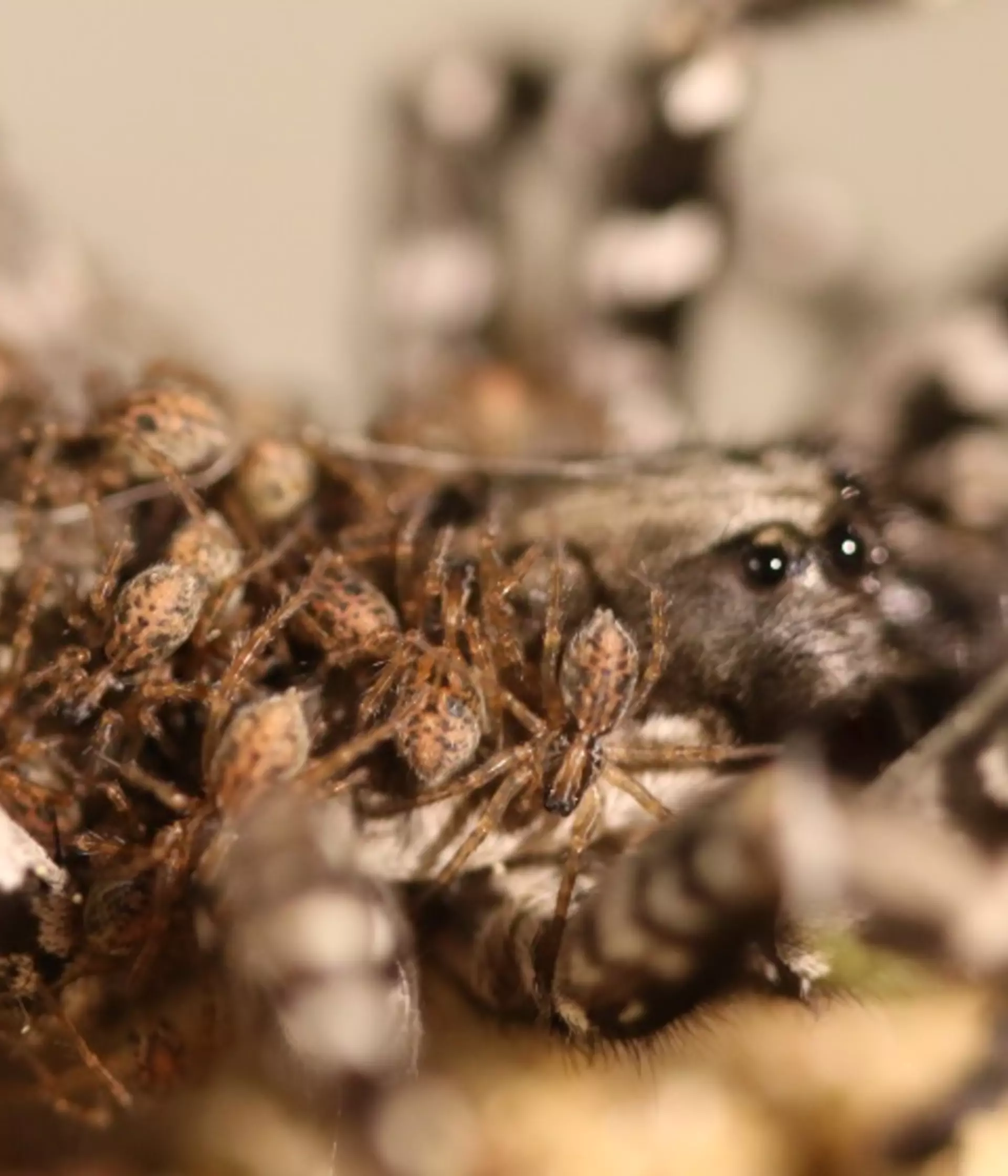
One of the world’s most endangered spiders has had a boost in numbers thanks to a vital conservation breeding success at ZSL (Zoological Society of London). It is only the second time that the species has been bred in captivity anywhere in the world.

ZSL’s zookeepers and conservationists are celebrating after approximately 100 Desertas wolf spiderlings hatched on 21 May. The success follows two years of careful planning, in which they found that a dark cellar at ZSL Whipsnade Zoo, with its humidity and stable temperature, was the ideal environment for the species to breed.
The large, grey spiders have black-and-white striped legs, and can grow up to 12cm long. They only breed once or twice in their lifetimes, after performing a “waving dance” with their front legs.
Spider conservation at Whipsnade Zoo
Populations of Desertas wolf spiders are at critically low levels on their native Desertas Grande island in Madeira, due to an invasive grass with a strong root system, which restricts the spiders from burrowing. Unable to create shelter or hiding spaces, the spiders become an easy target for predators.
Zookeeper Tyrone Capel said: “It has been fantastic to see these spiderlings hatch and, after two weeks clinging onto their mother’s back, climb off her to go their own way. Best of all it means that with a healthy population here at ZSL, we can continue to contribute to vital conservation research into one of the world’s most endangered arachnids, which we hope will benefit the species in the wild.
“One of the trickiest parts of the breeding process is identifying male and female spiders, and then carefully introducing them. The temperature and humidity also has to be carefully managed, and it’s vital to give them an environment in which they can easily burrow, as this is one of their primary behaviours.”
Part of an international conservation project – the European Endangered Species Programme (EEP) – the 100 spiders bred at ZSL will help to ensure a healthy population of the species survives.
